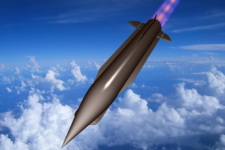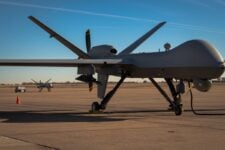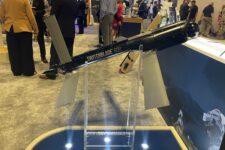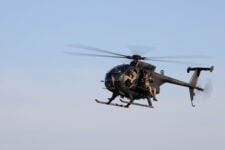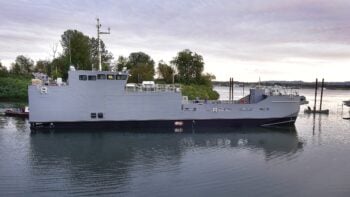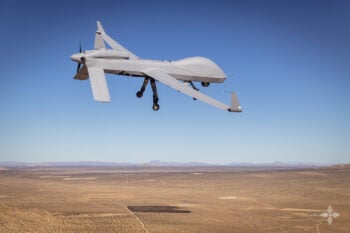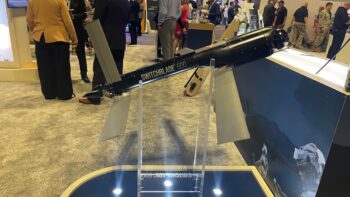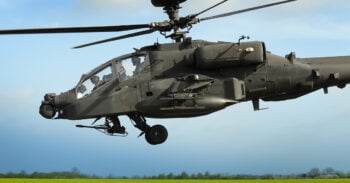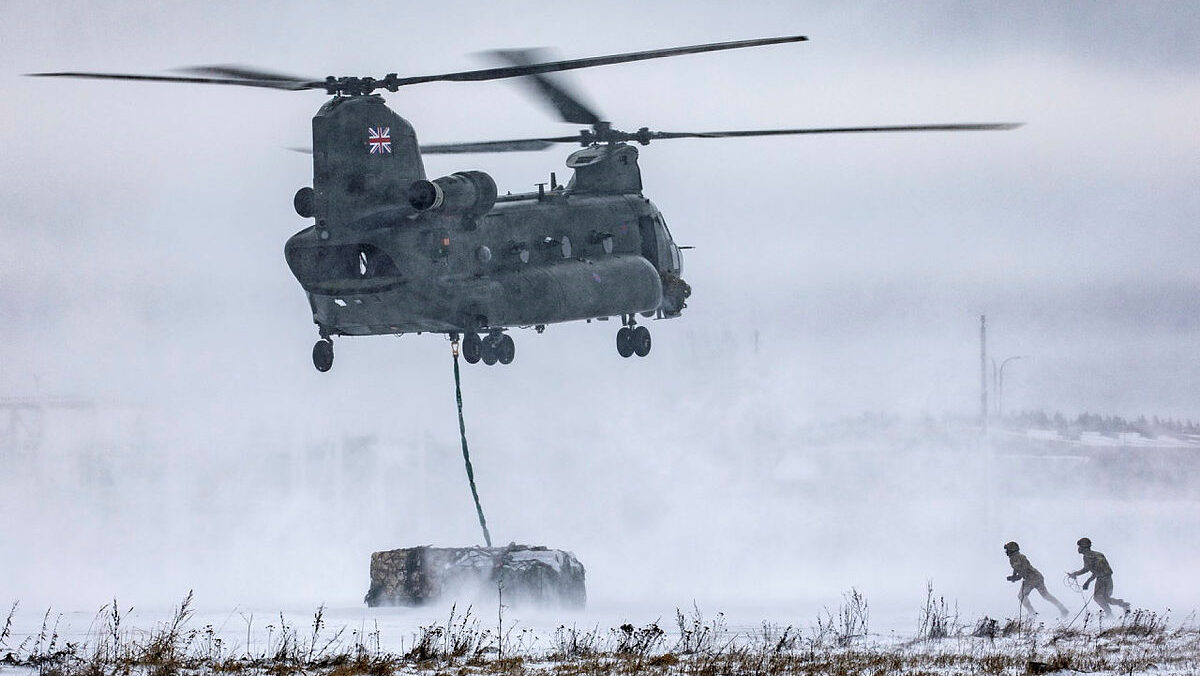
A Royal Air Force CH-47 Chinook helicopter from 18 Squadron, practices lifting equipment along with personnel from the Joint Helicopter Support Squadron in Estonia (UK MoD)
BELFAST — The head civil servant from the UK’s Ministry of Defence (MoD) has told lawmakers that “no decision has been taken to withdraw” from a planned procurement of 14 US-made H-47 Chinook Extended Range (ER) heavy lift helicopters, though inflation and a decision to defer the order have caused costs to increase over a set budget of £1.5 billion ($1.9 billion).
David Williams, UK MoD permanent secretary, said during a British Defence Committee hearing today that any decision to drop the deal would have “an impact on the range of operations that our armed forces are able to prosecute,” and confirmed that negotiations between London and Washington to close a Foreign Military Sale are ongoing.
That said, the push for the procurement to continue is down to a political policy around the need to prosecute “the hardest targets” identified by special forces, but if “that requirement disappeared tomorrow morning, then we wouldn’t need” the new helicopters, Lt. Gen. Rob Magowan, deputy chief of the defense staff for financial and military capability, told the Committee.
Williams suggested that the question of whether the UK should “carry on” with the H-47 ER procurement had been triggered by “concern in the summer” around the issue of affordability and the impact cost increases could have on other helicopter acquisitions.
The main rotary acquisition that looks to be under threat, and which already has been delayed on several occasions, is the £1 billion ($1.3 billion) New Medium Helicopter (NMH) program, aimed at replacing Royal Air Force Puma and other smaller rotorcraft fleets.
Industry competitors Leonardo, offering the multirole AW149; Airbus, pitching the H175M; and Lockheed Martin, offering the S-70M Black Hawk, still await the launch of the NMH Invitation to Negotiate phase. Breaking Defense previously reported that an original planned buy of up to 44 helicopters had since been reduced to between 25-35 units, according to Lenny Brown, managing director of Airbus Helicopters UK.
For the H-47 ER, the UK originally announced a £1.4 billion agreement ($1.8 billion) had been reached for the 14 aircraft in May 2021 with deliveries set to begin in 2026 and run until 2030, but budgetary pressures linked to COVID-19 caused London to order a three year delay, while a delivery schedule review has since been called for. Under plans published in the UK Defence Command Paper in 2021, the new fleet of ER platforms are set to replace the nine oldest Chinooks in the MoD’s Chinook inventory.
“We’re having conversations with Boeing about the next steps of the programme and I’d expect the decisions on that to be taken shortly,” said Williams.
A Boeing spokesperson told Breaking Defense any comments “on the status of the programme” should be deferred to the UK and US governments.
Williams declined to comment on how much the procurement had gone over budget, but said his department is attempting to “manage away” increased costs.
In September, James Cartlidge, UK defence procurement minister, confirmed in response to a parliamentary question that costs on the program had risen by £37 million ($46 million). He also noted that forward purchasing arrangements had been used to mitigate foreign exchange rate pressures on the acquisition.
The new H-47 ER helicopters have a top speed of 300 kilometers per hour (186.4 mph) and can transport up to 55 personnel or 10 tons of cargo. They also feature digital cockpits, modernized airframes to improve survivability and flight control systems so pilots can hover in areas of reduced visibility, according to the UK MoD.
TAI exec claims 20 Turkish KAAN fighters to be delivered in 2028
Temel Kotil, TAI’s general manager, claimed that the domestically-produced Turkish jet will outperform the F-35 Joint Strike Fighter.


